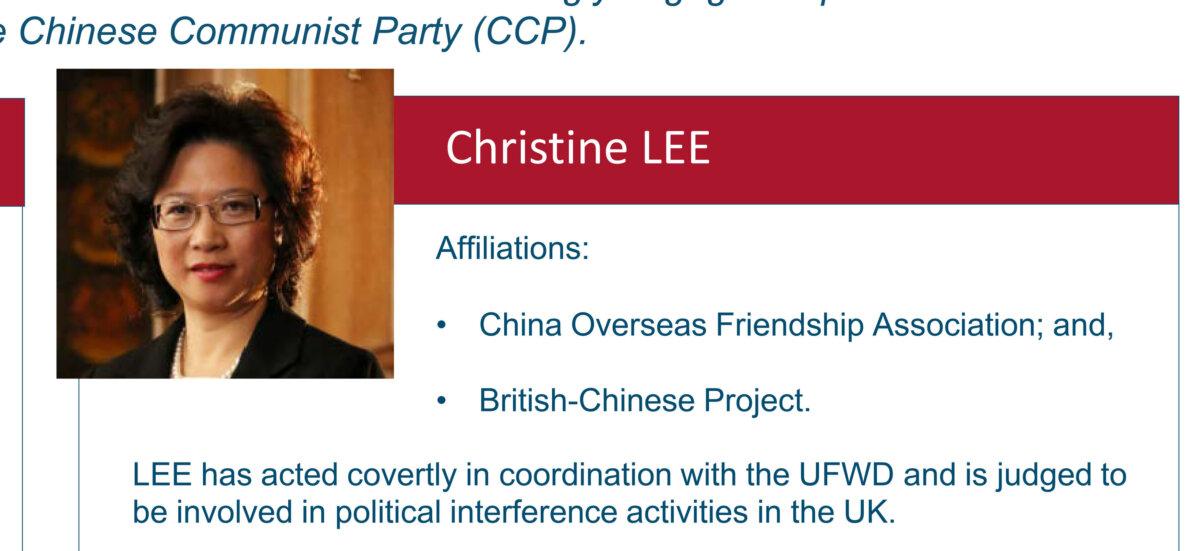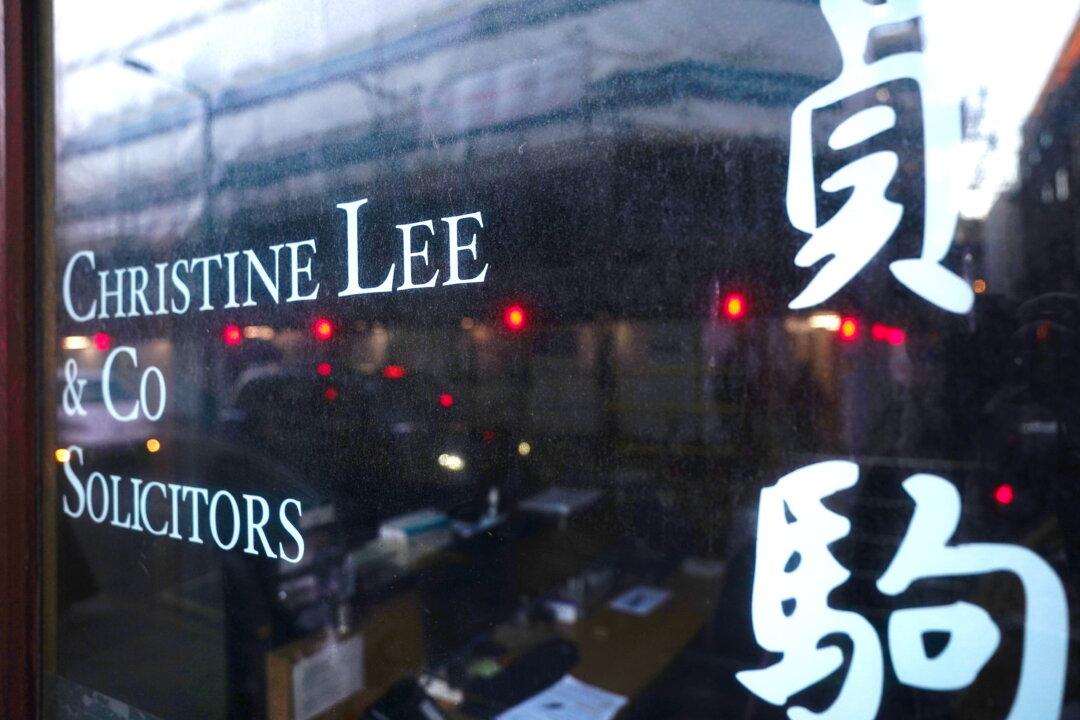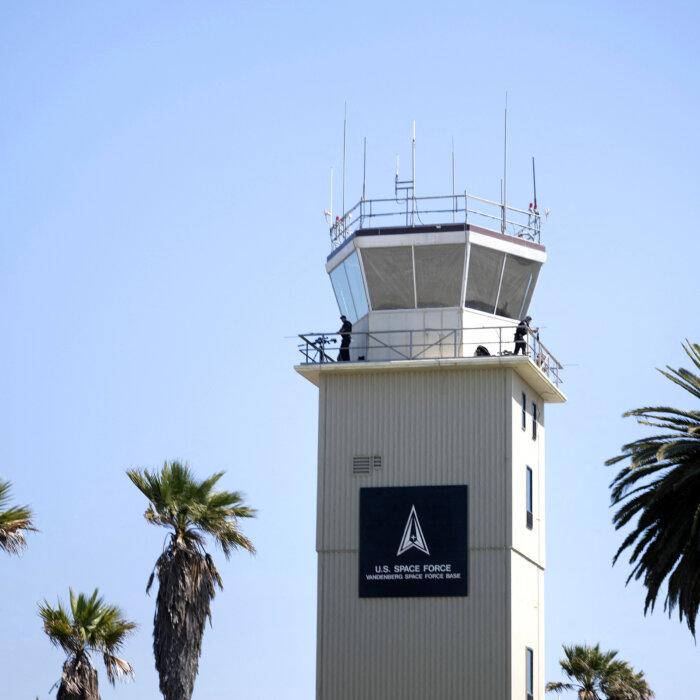A London-based lawyer who was accused by MI5 of being an agent of the Chinese communist regime has lost her legal challenge against the intelligence agency.
In January 2022, MI5 issued an interference alert against Christine Lee, a solicitor, warning MPs she was a suspected Chinese agent who had engaged in “political interference activities” on behalf of the Chinese Communist Party (CCP).
The alert was emailed to the speaker of Parliament, Sir Lindsay Hoyle, and was issued a day after then-Prime Minister Boris Johnson apologized to MPs for the so-called Partygate affair, and Lee said she believed the alert had been issued for “political purpose, namely to serve the interests of the Conservative party.”
But in a judgment on Tuesday, three IPT judges unanimously dismissed her claims.
Lee “categorically” denies the allegations against her and her legal team, and in their written submissions to the tribunal, had claimed she traveled to China and Hong Kong for business, met Chinese officials, and made speeches that “criticized the protesters in Hong Kong for using violence.”
Lee Risk ‘Rationally Assessed’
“We have reached the conclusion that the interference alert was issued in accordance with domestic law … The national security risk posed by C1 was rationally assessed and the issue of the interference alert falls within the national security functions of the Security Service [MI5],” Singh said.The ruling says the decision to issue the alert was “proportionate” to the risk posed by Lee and that “the objective of protection of national security was sufficiently important to justify limiting C1’s right to respect for private life and other qualified rights.”
They said the alert was designed to “mitigate the threat posed by C1 by ensuring that those individuals were mindful of C1’s connections to the Chinese state in any interactions they had with her.”
Lee had donated 500,000 pounds ($634,800) to Labour MP Barry Gardiner, who was chairman of the Chinese in Britain All-Party Parliamentary Group, which has since been disbanded.
At the time, Wilkes was working for Barry Gardiner, a former member of the shadow cabinet under then-Labour leader Jeremy Corbyn.
Wilkes lost his job as a result of the interference alert.

Lee and Wilkes claimed the alert was unlawful and interfered with their human rights.
But Singh rejected their claims, saying: “It has not been suggested in the present case that the claimants were subjected to torture. What is suggested is that they were subjected to inhumane or degrading treatment.
“We are not satisfied that it reached the minimum threshold required for a breach.”
Lee, a specialist immigration lawyer who set up her firm in 1994, said she lobbied MPs on behalf of British Chinese nationals, and to build trade links, and said any donations to MPs were recorded and passed parliamentary vetting requirements.
Her legal team told the tribunal that the donations to Gardiner came “overwhelmingly” from “profit costs” of her law firm.
Her barrister, Ramby de Mello, told the tribunal in June that Lee received “sustained abuse, threats of death, and rape” after the alert was issued and had been “in hiding” for long periods.
MP’s ‘Detract Attention’ Claim
The tribunal heard Gardiner sent a text message in which he said: “What has also been suggested to me is that the security services may have wished to ‘pick a fight’ or to ‘detract attention’ from something else and that we were simply collateral damage.“The fact that they have apparently failed to take any further action for the supposedly ‘illegal’ activity which they alleged had taken place, leaves me deeply skeptical.”
But in her written submissions to the tribunal, Victoria Wakefield, KC, representing MI5, said: “The decision to issue the interference alert was made in the discharge of the respondent’s statutory function to protect national security, in particular, its protection against threats from the activities of agents of foreign powers and from actions intended to undermine parliamentary democracy by political means.
“The respondent assessed that Ms. Lee posed a risk of this nature, and its judgment was that the issuing of the interference alert was the most effective and proportionate means to address that risk. Those assessments were rational and lawful.”
The IPT is an independent judicial body that provides “the right of redress to anyone who believes they have been the victim of unlawful action by a public authority using covert investigative techniques.”
Lee and Wilkes do have the right to appeal to the appeals court, but it is not clear whether they intend to exercise that right.
Martin Bridger, a lawyer representing Lee, in a statement to The Epoch Times on Tuesday, acknowledged the IPT had dismissed Lee’s claims and said she was “extremely disappointed” with the outcome.
“The interference alert displayed Christine Lee’s full name and photograph, and wrongly accused her of knowingly engaging in political interference and activities on behalf of the United Front Work Department of the Chinese Communist Party in the UK,” the statement said.
“Although the Investigatory Powers Tribunal’s judgment did not determine whether the espionage allegations made against Christine Lee were factually true or false, we reiterate that Christine Lee has not engaged in such activities.
“Christine Lee has been living in the UK since she was a child. She is a devout Christian, who has made tireless efforts to promote political participation and combat the discrimination faced by the British Chinese community.”
The statement said they are “considering their options in line with advice from their legal team and taking appropriate further action.”







